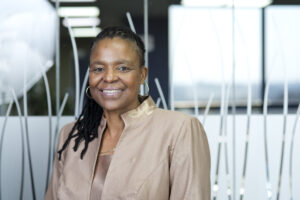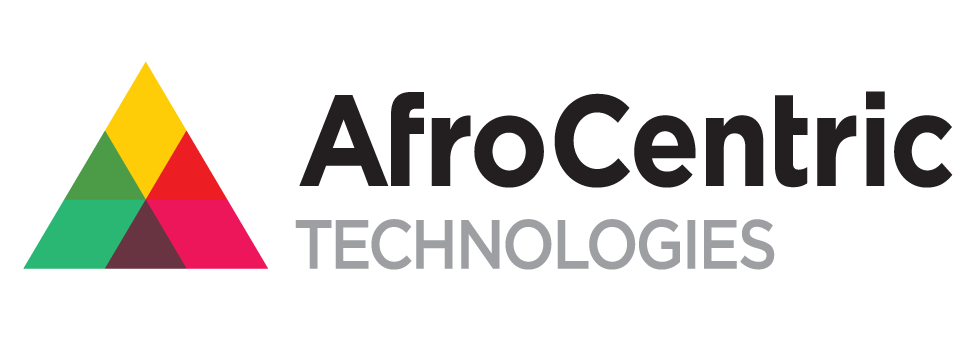A legacy of leadership
Dr Anna Mokgokong’s success comes with a mandate to empower others
Dr Anna Mokgokong, Chairperson of AfroCentric Group, has long been in the business of bringing healthcare to those who need it most — and of multitasking. In 1987, Mokgokong established a multi-purpose community clinic in Hebron, serving a socioeconomically diverse community, including vulnerable patients from the neighbouring villages. “As a community doctor, I played a multi-function role to my patients due to their diverse requirements,” says Mokgokong. “I was a psychologist, healer, community leader, mentor and a friend to them. I was the first doctor, let alone a female one, in that area. This was the most fulfilling aspect of my medical career. It got me wellgrounded.”
Even before her time at the clinic, Mokgokong had discovered another of her aptitudes. “My natural flair for business emerged when I was a medical student, as I had to raise money for my livelihood at medical school,” she says. She opened her first formal store before graduating, quickly learning to balance her entrepreneurial endeavours with her studies. In 1992, she was ready to join the corporate world full-time, and left her practice to start a medical distributorship in Eswatini, then another back in South Africa. From there, things moved fast: she met her business partner and established Malesela Investment Holdings, which later restructured and rebranded to Community Investment Holdings, of which Mokgokong remains Executive Chairperson.
“Black economic empowerment policies accelerated the growth of our company, as we partnered with other corporates, looking for prospective black partners. As I was experienced in healthcare, I was a natural pick for the healthcare options,” she says. “Our company grew in leaps and bounds, such that we ventured into hospital development and management. We partnered with Netcare, and subsequently sold our shares to Netcare. We utilised those funds to buy our equity in Medscheme, which thereafter was acquired by our healthcare asset, AfroCentric Limited. We then became a listed entity. The rest is history!”
Mokgokong views the promotion of diversity in the workplace as an essential part of the process of creating an environment that’s conducive to the achievement of excellence. The implementation of this attitude is practical and decisive: “At a board level our policies clearly articulate our position, and we pay attention also to succession planning, as this will bring up those who have potential and need support,” says Mokgokong. “To quote a friend, ‘inclusion is not a project or a process; it’s a way of life’. Can we as South Africans accept that diversity is a way of life, and an imperative? We must be unapologetic about implementing inclusion.”
Mediocrity is not an option, says Mokgokong, and neither is an individualistic outlook. “The issue of ‘self-first’ is not progressive,” she cautions. “It should be inclusiveness that is your guiding value. It’s important for you as you rise, and as you have risen, to also consider those coming after you.” Mokgokong subscribes to Charlotte Maxeke’s philosophy of “No one left behind” and believes that it’s her responsibility to guide, lead and mentor future female leaders. “That is the exciting part about leadership,” she says. “When you look back and you see the impact you have made — I believe that is the rich legacy that you leave behind.”
– Cayleigh Bright
 How to treat transformation
How to treat transformation
Modjadji Tati’s career has given her nuanced insight into the healthcare industry’s needs
As Executive Director: Human Capital and Transformation at AfroCentric Group, Modjadji Tati is responsible for planning and
directing corporate human resources. Her role is expansive, covering several aspects of the healthcare industry: overseeing employee compensation and benefits, training and development strategy, transformation initiatives, internal relations and more. Thankfully, Tati has all the experience of an impressive career to guide her, and has consistently demonstrated compassion and a commitment to developing talent in others.
Modjadji began her career as a qualified nurse before furthering her studies: her qualifications include a BCur Nursing Science
degree, a BCom degree with an Honours in Finance, and a Master’s in Leadership. “When change occurs in your career, it forces you to adapt to something new and unfamiliar, which helps you become a better-rounded and experienced professional,” says Tati.
A considerable portion of what’s on Tati’s plate involves change of another kind: AfroCentric’s work towards transformation in the healthcare industry. “Embracing diversity is a critical step for our organisation to grow and make an impact for all our stakeholders,” she says. “We’re able to have a broader range of solutions due to a leadership team that has diverse backgrounds, experiences, and most importantly, different perspectives. Diversity in our leadership team strengthens our innovative capacity and unleashes our potential to develop better products and understand and meet our customers’ needs.” Looking to the future, she hopes for a more equitable healthcare system, accessible to all South Africans.
As the healthcare industry adapts to a pandemic, rapid technological advances and other unprecedented challenges, medicine and its adjacent industries have changed significantly, even in the span of Tati’s career — but her experience stands her in good stead. She understands the need for better healthcare in the country as well as the financial realities of what has to be done to achieve it. “As an ICU nurse, my objective was to make the patients better so they can be reunited with the families and their communities,” she says. “Now that I’m in the private healthcare industry and company, I’ve learned to appreciate the importance of balancing the quality of healthcare and the cost.”
– James Nash
 Vital Statistics
Vital Statistics
Dr Nomalungelo Nyathi has a keen understanding of the numbers that underpin accessible healthcare
Always a matter with widespread concern, the issue of affordable healthcare has come to particular prominence in the light of the global pandemic. For Dr Nomalungelo ‘Lungi’ Nyathi, the questions surrounding how to achieve accessible healthcare are ever-present. As Managing Executive: Clinical Risk and Advisory at AfroCentric Group, her role entails constant analysis of the factors that affect medical care costs.
Armed with comprehensive data on all the claims, including the claims and outcomes performance of all the healthcare professionals, Nyathi is able to ensure that healthcare networks can keep costs to a minimum — and standards high. “Most of the time we’re working on models to see ‘how can we change the way the system performs and/or how we can shave the costs in the system even further?’ “Further we are looking at how can we digitise portions of healthcare to transform the way care is delivered?’ Lastly we are looking at differentiating products which offer different kinds of choices for healthcare consumers, whether they’re health insurance products or low-cost scheme options and other value add products outside the scheme environment ” she says.
In recent months, Nyathi’s expertise in achieving equitable outcomes has found specific application in Covid-19 cases. “We have been contracting private healthcare providers for a long time — the doctors as well as the specialists and hospitals,” she says, explaining that her team has established relationships and knowledge that allow for agile, strategic reallocation of resources. Over the course of South Africa’s national lockdown, a reduction in hospital admissions has meant increased capacity in the private sector, so: “We’ve been able to help the Department of Health negotiate and contract good prices for patients who may need to go into a private healthcare facility. There are ways that we can contract with the Department of Health for them to ‘decant’, as it were, some of their excess demand from the public health system and bring it to the private health system, in a sustainable way. That’s a direct way of improving healthcare delivery for public sector patients using private sector capabilities.”
– Cayleigh Bright



